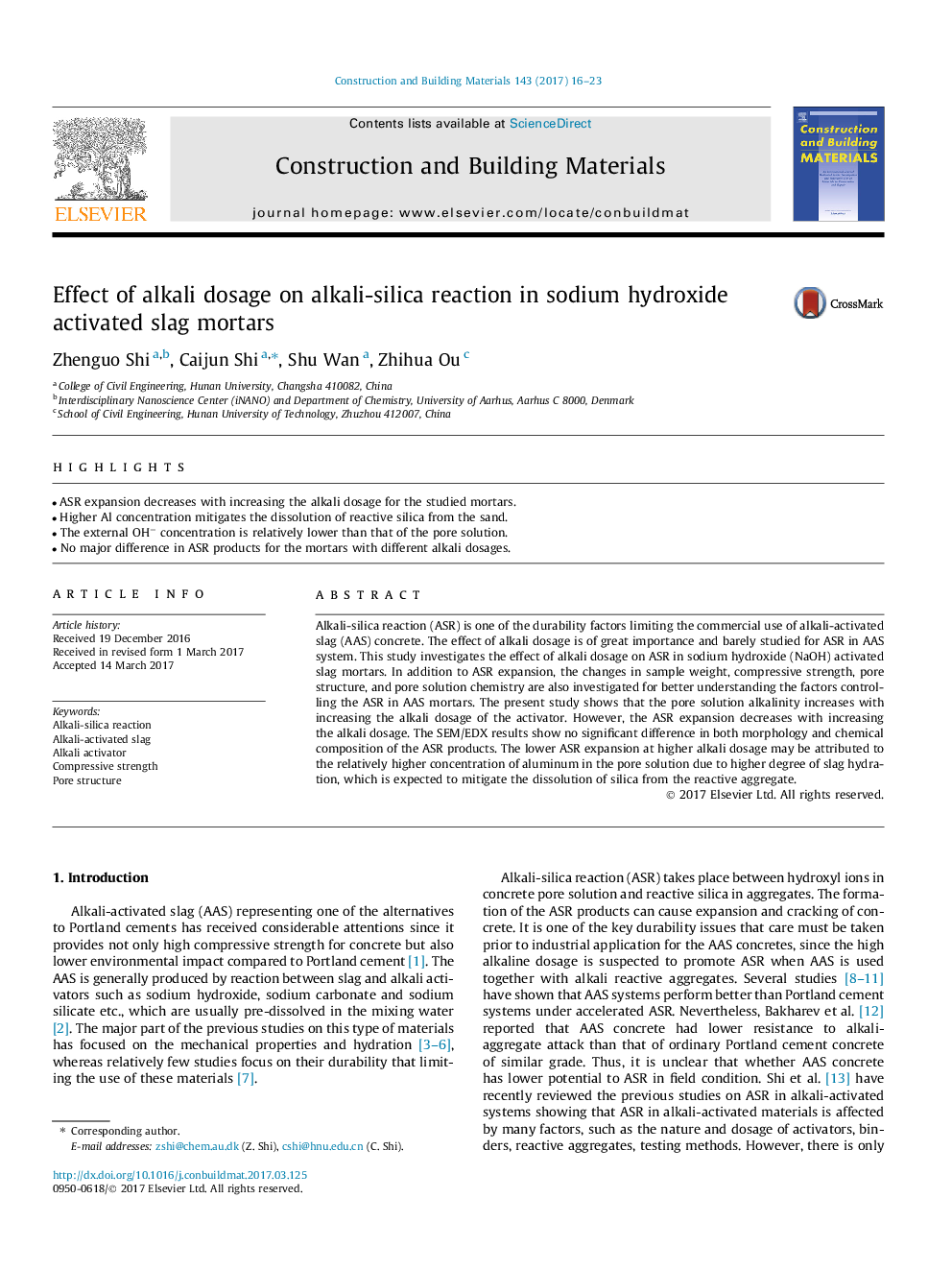| Article ID | Journal | Published Year | Pages | File Type |
|---|---|---|---|---|
| 4913216 | Construction and Building Materials | 2017 | 8 Pages |
Abstract
Alkali-silica reaction (ASR) is one of the durability factors limiting the commercial use of alkali-activated slag (AAS) concrete. The effect of alkali dosage is of great importance and barely studied for ASR in AAS system. This study investigates the effect of alkali dosage on ASR in sodium hydroxide (NaOH) activated slag mortars. In addition to ASR expansion, the changes in sample weight, compressive strength, pore structure, and pore solution chemistry are also investigated for better understanding the factors controlling the ASR in AAS mortars. The present study shows that the pore solution alkalinity increases with increasing the alkali dosage of the activator. However, the ASR expansion decreases with increasing the alkali dosage. The SEM/EDX results show no significant difference in both morphology and chemical composition of the ASR products. The lower ASR expansion at higher alkali dosage may be attributed to the relatively higher concentration of aluminum in the pore solution due to higher degree of slag hydration, which is expected to mitigate the dissolution of silica from the reactive aggregate.
Keywords
Related Topics
Physical Sciences and Engineering
Engineering
Civil and Structural Engineering
Authors
Zhenguo Shi, Caijun Shi, Shu Wan, Zhihua Ou,
